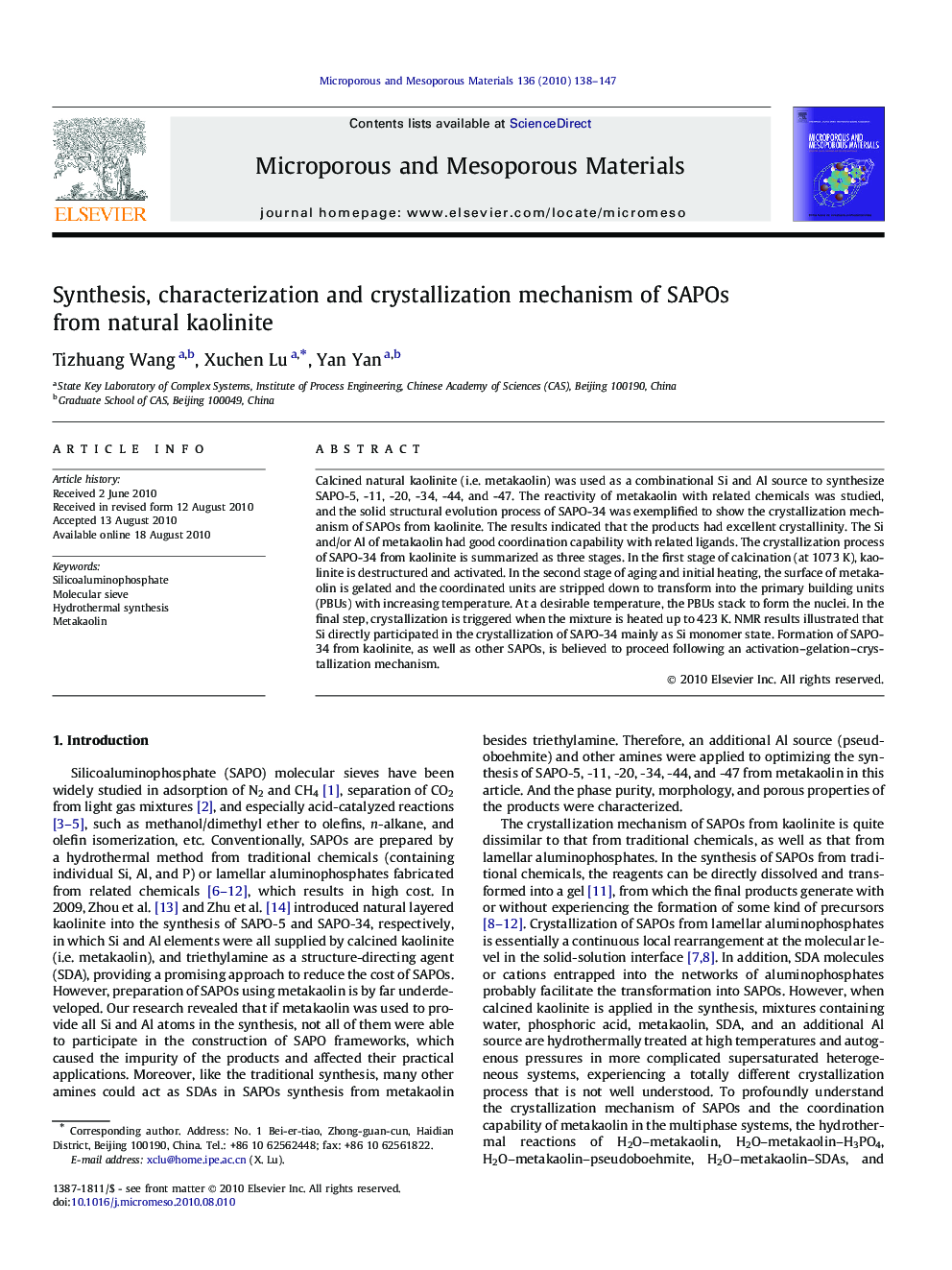| کد مقاله | کد نشریه | سال انتشار | مقاله انگلیسی | نسخه تمام متن |
|---|---|---|---|---|
| 75198 | 49111 | 2010 | 10 صفحه PDF | دانلود رایگان |

Calcined natural kaolinite (i.e. metakaolin) was used as a combinational Si and Al source to synthesize SAPO-5, -11, -20, -34, -44, and -47. The reactivity of metakaolin with related chemicals was studied, and the solid structural evolution process of SAPO-34 was exemplified to show the crystallization mechanism of SAPOs from kaolinite. The results indicated that the products had excellent crystallinity. The Si and/or Al of metakaolin had good coordination capability with related ligands. The crystallization process of SAPO-34 from kaolinite is summarized as three stages. In the first stage of calcination (at 1073 K), kaolinite is destructured and activated. In the second stage of aging and initial heating, the surface of metakaolin is gelated and the coordinated units are stripped down to transform into the primary building units (PBUs) with increasing temperature. At a desirable temperature, the PBUs stack to form the nuclei. In the final step, crystallization is triggered when the mixture is heated up to 423 K. NMR results illustrated that Si directly participated in the crystallization of SAPO-34 mainly as Si monomer state. Formation of SAPO-34 from kaolinite, as well as other SAPOs, is believed to proceed following an activation–gelation–crystallization mechanism.
Figure optionsDownload as PowerPoint slideResearch highlights
► SAPO-5, -11, -20, -34, -44, and -47 were synthesized from natural kaolinite.
► Crystallization of SAPOs followed an activation–gelation–crystallization mechanism.
► Si participated in the crystallization of SAPOs mainly as Si monomer state.
Journal: Microporous and Mesoporous Materials - Volume 136, Issues 1–3, December 2010, Pages 138–147